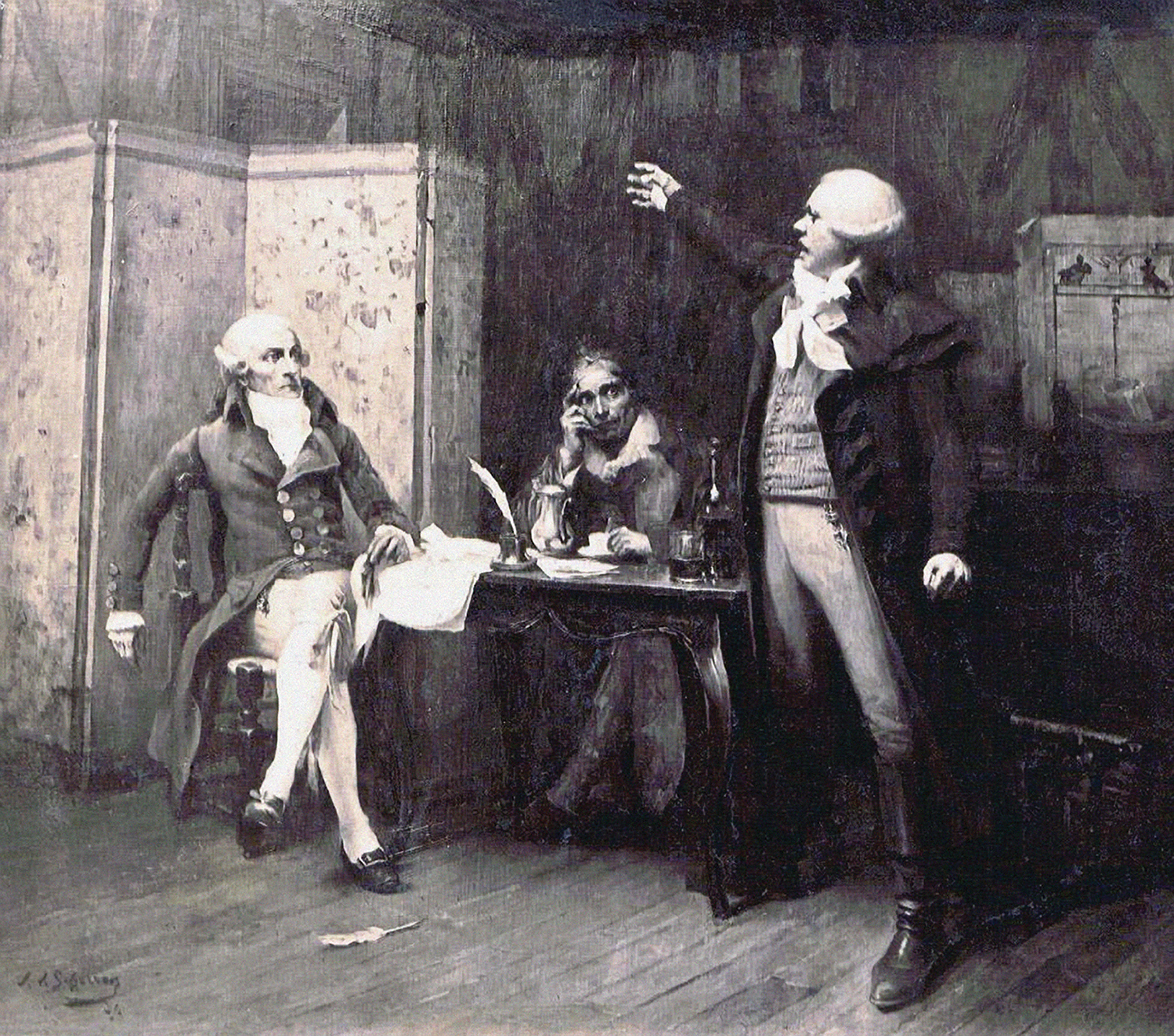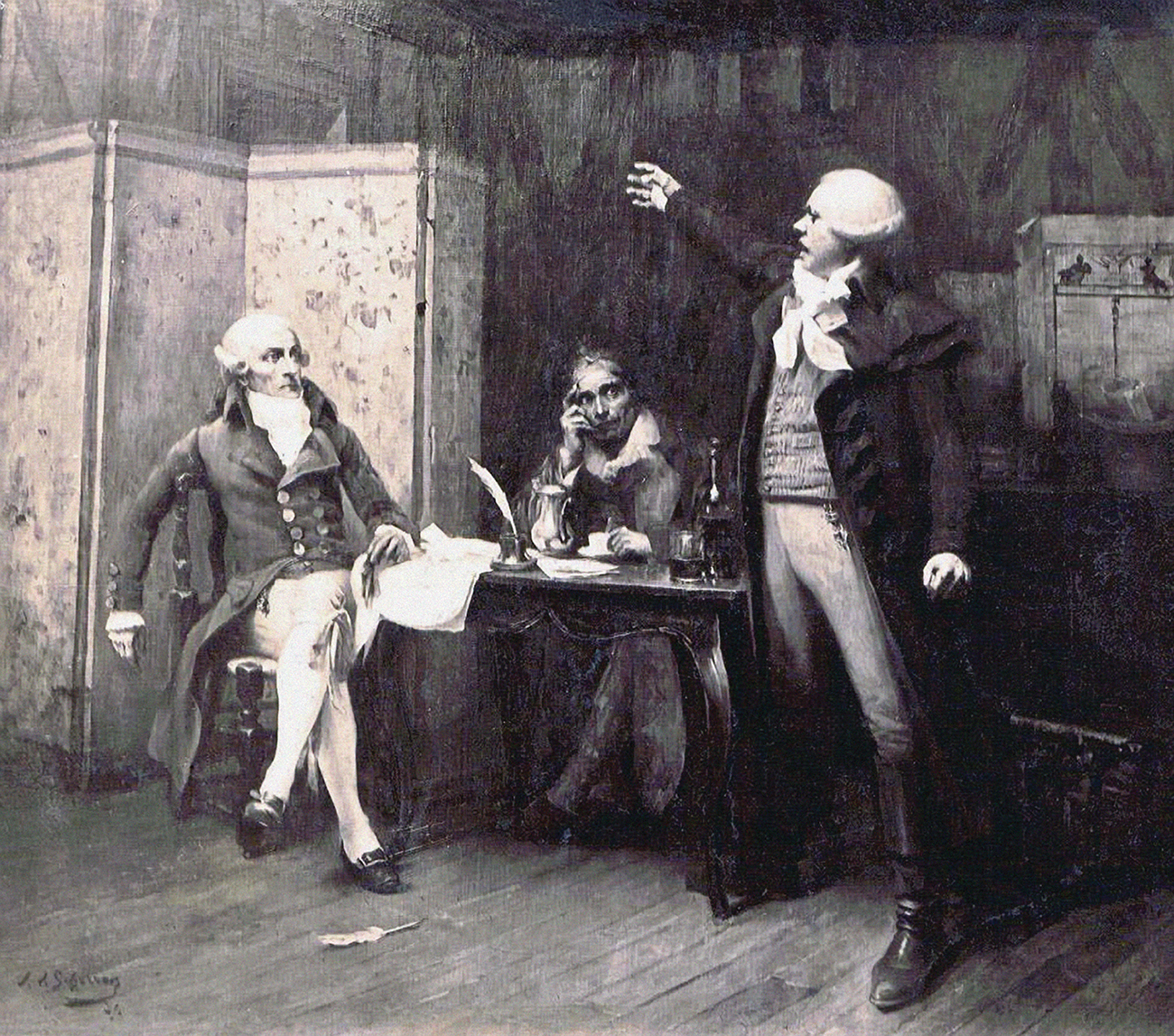Georg Büchner
Danton's Death
Opening March 2018 on the Main Stage
Five years after the onset of the French Revolution, the Jacobins, members of a revolutionary political movement, have taken power in France. Led by the radically extreme Robespierre, they terrorize the citizens by a tireless use of the guillotine to decimate the ranks of potential traitors of the Revolution. One of the leaders of the early Revolution, Georges Danton, is tired of bloodshed, instigated by the revolutionary zeal, and begins to withdraw from politics, seeking the company of friends, cards and women instead. His political ally and friend Camille Desmoulins implores him to use his influence and stand up against Robespierre and his reign of terror. Robespierre, seeing his enemies everywhere, remains adamant and continues to advocate extreme measures ̶ in particular the callous executions that are regarded as the only safeguard of the newly formed ideals of the French Republic, as opposed to the rule of the privileged classes, the aristocracy, the royalists and their supporters. Robespierre arrests Danton and delivers him to the National Convention, which is ambivalent, following the executions of numerous political opponents, whether they should annihilate Danton, the man who saved France in 1792. Robespierre, speaking on behalf of the country and the Revolution, which, according to a historical rule, devours its own children, as this is its nature and precondition of freedom, convinces the deputies that Danton is guilty. Standing trial at the revolutionary court, Danton urges people to turn against Robespierre and his dictatorship that is bound to drown the Republic in blood. The people initially support him, but then the scales suddenly turns ...
Danton's Death (1835) was the first play written by a German playwright Georg Büchner, who is considered, alongside Heinrich Heine and Goethe, one of the most prominent representatives of the so-called German Vormärz (pre-March) period. In literature, the movement was committed to the emancipation of the individual and liberal political principles. The first edition of Danton's Death contained extracts from historic political speeches and is thought to be one of the earliest examples of documentary playwriting. It was heavily censored and did not receive its premiere until 1902 – almost seventy years after Büchner's death.
Dantons Tod, 1835
Drama
Ustvarjalci
Translator
Bruno Hartman
Director
Aleksandar Popovski


